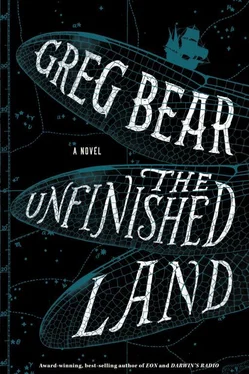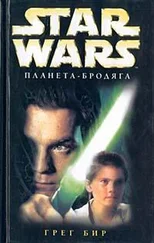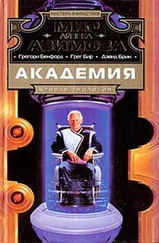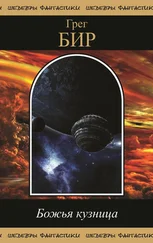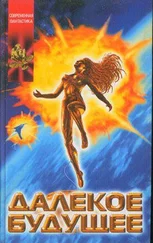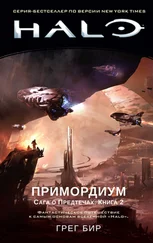He shook his head. “There must be good and various reasons to live, and they cannot all involve animal loss or animal gain.”
Yuchil’s smile was like a light in the early morning gloom. “Wisedom beyond thy years.”
“Misery breedeth change in hearts and minds. Some call it wisedom.”
“Thou hast remembered some things, Widsith doth tell me. Thou remember’st your grandmother speaking to thee in thy mother’s womb… teaching thee some of her words?”
He nodded.
“If that was given to thee, then something else happened as well. Dost thou remember others who sought thee out and conveyed their words?”
Reynard looked into the silver-haired woman’s youthful eyes, and noticed that Calafi had come closer and was listening. None of the others approached, however—they did not appear to notice them at all. “I remember a man with a white shadow, who spake to me whilst I hid in a hedgerow. And another man, who came whilst I was alone at sea. He had a feathered hat.”
“Thy grandmother would have arranged another ceremony. A completion, as it were, of thy charge and task… a loading of the musket, a fletching of thine arrows.”
Reynard frowned at her. “I do not remember any such ceremony,” he said.
“She would have determined thy quality then, and armed thee with the languages she knew thou wouldst need. Inner languages. Inner qualities that stream now through thy flesh and along thy bones. Dost thou feel them, like cold fire… like the white shadow of the strange man, and the feather in the fancy hat of th’other?”
“I sometimes dream such,” Reynard said. “But the dreams are deep in fog, and I do not remember them when I awaken… so perhaps, no.”
“Time to awaken the dream and make it remember thee, young Fox.”
“How can that happen?”
“It is like the beginning. May I speak to thee of that place, those people, that time?”
Reynard nodded, though he almost dreaded hearing such things, because of the responsibility they might bring.
“Once, people who would become like thee and me were deaf. They heard nothing, and only saw, and that not in colors, but merely in grays and blacks. The man with the white shadow is a presence from those times. He will not leave thee alone, ever.
“The people who would become human felt only the pounding of their feet deep in their bodies, as they walked a dark and silent realm, trying to find themselves and all who would come after. Many such passed into oblivion. They also felt the pump of their blood and the drumbeat of their hearts, and once, one looked up at a bird on a bare tree and thought she heard a thin, light sound. So she put her fingers to her lips and blew out her breath, and heard the whoosh—but also a high whistle—and others around her heard it as well, and so they were no longer deaf, and wondered what that would bring to them. It took a long time to hear the wind and the land around them, but it did happen in time, and the more they listened to the sounds they already knew, the more new sounds became apparent. Once, a woman screamed in pain as she was gnawed by some beast. They heard that, and made it into a word to warn and frighten.
“Another moaned in sickness, and that became another word, and with these new words came new fears and new ideas. It took thousands of years for these peoples to realize they lived on plains of rustling grass, and to know what grass was, and what ate the grass, and what ate the animals and insects that ate the grass, and the more they listened to these animals, and to the birds, the more words they acquired, and went to other groups of people, other tribes, and traded them words. The birds had song, and something like words, and the animals had their sounds, but only these people could grow and trade their languages.”
“I have heard other versions of this before,” Reynard said.
“As is proper, for all histories are personal. The first words became mothers to new tongues, and stories grew. This is when Queen Hel realized these peoples might be important, for they could teach her words, and she might move out of her own silence. And so she was grateful, and elevated them, and set them a long task: to carry languages around the world, but most especially, to build boats and cross the sea, and visit the Tir Na Nog, and provide instruction to the strange beings that had arrived on her creation, and that she herself feared and knew not. For they were shapeless beings, angry in their boredom, and had no tasks, and knew nothing of what they might be or become. And so their power would be a danger to her, she thought, unless she found them a place and things to do… And she felt the first Travelers might help in that way.
“And so it was. Carrying their trade and their words on boats, and on wagons, and on horseback, and on foot, the first Travelers crossed the krater lands where these beings had arrived, and were still arriving, and in fear, met them… trembled at the nightmares they seemed to be… and spake to them.
“And the Crafters—for that was what they would be called—heard the human words, and saw how those who spoke moved and conveyed, their voices carrying meaning as well as story…
“And it was here that they conceived of a string of stories that would move and compel, and help shape form as well as motion. Humans came to call this ‘destiny,’ but also ‘history.’
“Queen Hel watched the Crafters as they took apart some of these visitors and stared deep into their flesh, and there found other languages that defined lives and shapes, and which history would then change. And they saw the potential in that flesh, in those bodies.
“For in the beginning was the word both of sound and flesh. And Hel was pleased, for she saw creation was underway at last, and change upon change would be our greatest story and worthy of many songs.”
Calafi had listened to this with restless fidgets, but now she crawled over to Reynard and grasped his arm, the arm holding the cup, and sloshed it into the dirt. Then she ran her fingers along that arm, in bunches of two, then three, then one, then four.
“Ogmios speaks through those who taught you when you were a child,” Yuchil said. “Calafi has felt the same fingers and many of the same messages.”
The young girl looked upon him with wide and somber eyes. “Valdis felt them when she was mine age, I think,” she said. “And that is why she is here, even though she is an Eater, and not a high one, either. In this she knows more than Calybo or Guldreth or any of those just beneath the sky.”
Then she got up and ran away. Yuchil watched her sadly.
“I would wish both of ye child time,” she said. “But I fear neither will ever know such.”
Nikolias followed the girl to a mossy gray rock-thrust wall along one side of the rough road and spoke to her in low tones. She in turn rolled her eyes up into her head and began to tremble, and Nikolias held her shoulders to steady her. After she collapsed in his arms and appeared to sleep, he brought her back to the wagon and put her in the charge of Sany and Bela. “For a time, she must be apart from Yuchil and Sophia,” he said, but did not explain.
Nikolias came to Widsith and nodded at him, then at Reynard. “A message sings in this krater air that our girl hears and interprets. We are at some disadvantage here, but not yet defeated. Before we cross this boundary, we must stay and adjust… as we did before.”
Reynard could sense no difference in the air they were breathing and wondered why they had to linger so long—hours extending into two days.
After two nights, as he tried to sleep, he looked deep into his memories and thought he detected a kind of change in coloration, as if the tinting varnish of an old painting were being removed. Was that the effect they desired, taking these airs? But when morning came, all seemed much the same—as uncertain, strange, and of ill prospect as before.
Читать дальше
